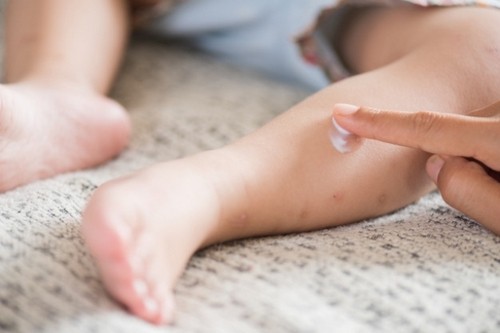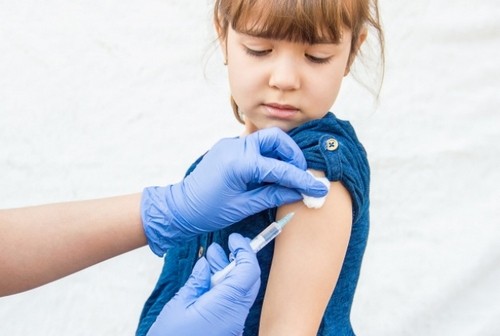Measles is a highly contagious virus that spreads through coughing and sneezing. The virus can survive up to two hours in the air or on surfaces that an infected person has come into contact with. You can get sick if you inhale infected air or touch one of these surfaces, and then touch your eyes, nose, or mouth.
Most people who have had measles in recent years have not been vaccinated, so the first thing you can do to protect yourself is to make sure your vaccinations are up-to-date. People traveling abroad, especially those who have children under 1 year old, should talk with their doctor about additional preventive measures.
Although most people should definitely not panic about measles, it’s important to understand the threat that the disease poses. Always, but especially during an outbreak, it is important to know whether you and your children receive measles vaccines in a timely manner.
If an unvaccinated person is vaccinated within 72 hours of exposure to measles, he or she may receive some protection or ease the course of the disease. In addition, doctors can give unvaccinated people a medicine called immunoglobulin (IG), which may also provide some protection.
To learn more about measles and to understand whether you need to worry, we decided to talk about the symptoms, treatment and prevention of the disease, and answer the most common questions.
Before the measles, mumps and rubella (CCP) vaccine was invented in 1963, the number of deaths was astounding. By 2000, the incidence was minimized, but outbreaks still occur. The reason for the emergence of new outbreaks is simple – more and more people are refusing vaccination.
How is measles?
When most people think of measles, they imagine a person covered in a rash from head to toe. But this is not the first and not the most serious symptom of the disease.

At first, patients simply have symptoms typical of any virus:
- Heat.
- General malaise.
- Nausea.
- Cough.
- Runny nose.
- Conjunctivitis.
Approximately 14 days after infection, a rash spreads through the body, the first foci of which are usually located on the head. Ear infections occur in about 10% of children, and some also have diarrhea.
A small percentage of people with measles develop complications that can cause long-term disability or even death. These include pneumonia, hearing loss, tracheal infections, and a very rare brain disease called subacute sclerosing panencephalitis.
Is there a cure for measles?
Since measles is a viral infection, there is no cure for it. In most cases, the disease goes away on its own – people recover completely 2-3 weeks after infection. However, there are some drugs that can relieve discomfort and speed recovery. Your doctor may recommend acetaminophen or other over-the-counter drugs to relieve fever and muscle pain, as well as plenty of rest and water to prevent dehydration.

If a blood test of a person with measles indicates a low level of vitamin A, which can aggravate the situation, he may be prescribed an supplement. If a bacterial infection, such as pneumonia, develops, antibiotic treatment may be required.
You can be contagious without knowing it
Patients are considered contagious four days before and after the rash. This is one of the reasons why the spread of the virus causes such concern. That is, a person can infect others before the appearance of a rash or other symptoms of the disease.
According to the CDC, measles is so contagious that 90% of an infected person’s relatives who are not immune can become infected. Children belong to the most vulnerable category, since they cannot be vaccinated against this disease until they are one year old. Pregnant women are also at increased risk due to a weakened immune system. At risk are also people with cancer and other chronic diseases whose immune system is too weak to be vaccinated.
How effective is the measles vaccine?
The two-dose CPC vaccine according to the schedule of immunization is 97% effective against measles. This means that about three out of 100 vaccinated people exposed to measles can still get sick. In other words, yes, you can get measles if you were vaccinated in childhood, but the chances are extremely low. In addition, the vaccine is also 88% effective against mumps, another highly contagious disease that has also escalated in recent years.

In addition, the vaccine very well prevents serious complications caused by measles. Even if a person develops measles after vaccination, the disease will most likely proceed in a milder form.



